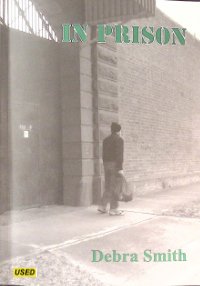By Sharon Dolovich
In their welcome new article, Justin Driver and Emma Kaufman offer a provocative take on American prison law: that it is “fundamentally incoherent.” They base this conclusion on the Supreme Court’s repeated tendency to assert contradictory factual premises about prisoners and prison life. In one case, as the authors show, the Court will characterize prisons as violent and in another as “uncomfortable but mundane”; sometimes the Court describes prisoners as illiterate, at other times as strategic and effective litigators; and so on. If ever one imagined this area of the law to have a stable factual foundation, Driver and Kaufman’s dexterous excavation of the Court’s “selective empiricism” puts that notion firmly to rest. But viewed through a broader lens, the Court’s prison law jurisprudence proves anything but incoherent. For all the factual switchbacks Driver and Kaufman identify, there is an unmistakable consistency in the overall orientation of the field: it is consistently and predictably prostate, highly deferential to prison officials’ decision-making, and largely insensitive to the harms people experience while incarcerated. These features represent the practical manifestation of the divergent normative inclinations the Supreme Court routinely displays toward the parties in prison law cases. It is hardly a secret that American carceral institutions routinely burden prisoners’ fundamental liberties and fail to provide even minimally safe and healthy living conditions. Yet with prison law’s moral center of gravity tilting so far in the direction of defendants, plaintiffs bringing constitutional claims in federal court can expect to win only in the most extreme cases, leaving the prison environment largely free of judicial regulation. In this essay, I explore the mechanisms by which, despite what is known about the reality on the ground in American prisons, courts hearing constitutional challenges brought by prisoners so persistently find in favor of the state. In particular, I zero in on two components of the judicial process in this context: the construction of defendant-friendly doctrinal standards for deciding prisoners’ claims and the deferential posture with which federal courts tend to approach defendants’ assertions in individual cases. As to the doctrine, especially during the Rehnquist Court, the Supreme Court systematically deployed a set of maneuvers — which I have elsewhere termed canons of evasion — to construct doctrinal standards for prison law cases that strongly incline courts to rule in favor of the state. In Part I, by way of illustration, I map the deployment of these various mechanisms in two especially consequential cases, Whitley v. Albers and Turner v. Safley, and show how their use operates to create a doctrinal environment decidedly unfavorable to prisoners’ claims
135 Harvard Law Review Forum 302 (2022).










